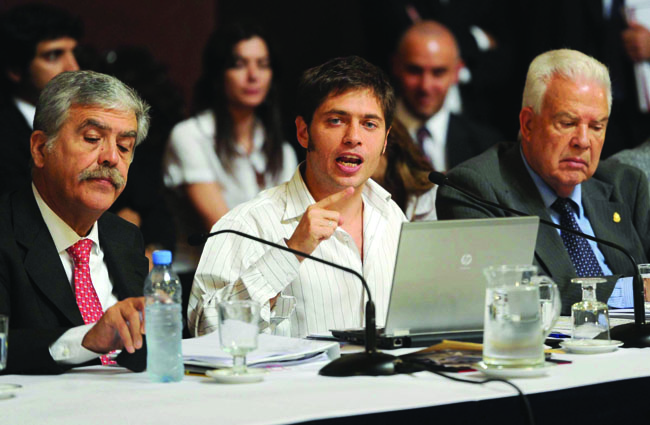The Brazilian mining company demands a tax reduction (VAT rebate) and improvements in the exchange rate. It seeks a partner to share investment with, and negotiates with Asian companies.
Argentina and Brazil negotiate at the highest level the reactivation of Potasio Río Colorado, interrupted since December by Brazilian Vale. Dilma Rousseff administration’s high-ranked officials travelled to Buenos Aires to personally agree on the conditions for a possible project reactivation.
On February 5th, Brazil’s Minister of Development, Industry and Foreign Trade, Fernando Pimentel, and Vale’s president in Argentina, Sergio Leite, met with Deputy Economy Minister Axel Kicillof, Planning Minister Julio De Vido, and Mendoza’s Governor Francisco “Paco” Pérez, to move forward in that direction. In the meeting which took place at the Brazilian Embassy in Buenos Aires, there were also Luis María Kreckler ―Argentina’s ambassador to Brazil and loyal to De Vido―, and the highest authorities of Brazil’s mining industry.
The parties agreed to keep holding until February 28th, when Vale announces its next steps. Until then, the mining company ―the largest in Brazil and the third nationally― will continue to be responsible for the salaries of almost 4,000 workers involved in this initiative, which is ‘indefinitely’ in recession since late December and is valued at about US$ 6,000 million.
The company will also advance with the certification of tasks carried out by suppliers and service providers taking part in the potassium mine construction. Since the project suspension, the company stopped paying a large portion of its contractor network which, so far, accumulates credit in its favor without a certain date of repayment.
“It is a complex issue because there are many suppliers that worked for the company, and did not get paid yet,” a close associate of Paco Pérez’s explained to El Inversor Energético & Minero. According to provincial government estimates, in Mendoza Vale bid on works for US$ 1,900 million, of which US$ 1,200 have already been executed. The company did not reply our calls.
Opposing points of view
Vale intents to get VAT (Value Added Tax) exemptions for this enterprise expenses until the start of production, originally planned for 2014. If before the suspension many distrusted that the opening could be achieved on that date, now it is clear that inauguration is to be postponed.
In Mendoza it is argued that Vale seeks to save US$ 1,000 million in taxes, and to sell out foreign currency that enters Argentina at a higher value than the current one. Besides, it is emphasized that the key to unblock the project is to find new financing sources since, due to the drop in iron and potassium international prices, Vale is rethinking its investments worldwide.
“Vale has been searching, for some time now, a local or international partner in order to share the investment in the mega-deposit,” said sources consulted. “The Brazilian company,” they added, “held negotiations with a Chinese company and with a Japanese firm. Moreover, in the last months of 2012, a Chilean consultancy agency carried out a due diligence to evaluate a possible joint venture, but there is no official announcement yet in this respect”.
At the same time, the project plans the construction of a railway to transport the minerals from Mendoza to Bahía Blanca port. The design runs through Neuquén, Río Negro, La Pampa and Buenos Aires. However, Mendoza government warned that these provinces’ towns demand that the railway reaches them. And they are delaying the construction authorization. The railway diversion would imply an additional investment of US$ 1,000 million, as the company informed Mendoza authorities.
A similar situation occurs with the private concessionaires of Río Negro and Neuquén lands through which the railway will run, who must give their consent to the construction. “70% of superficiaries has yet to authorize the works,” a government official explained.
Although Vale will never accept it officially, it fears that the construction delay leads to a strong increase in the projects expenses, as a result of the country’s inflation. Vale observes with concern Barricks’ Pascua Lama, which launched the project with an initial investment of US$ 3,600 million and two years later had to rectify that sum above US$ 8,000 million. Another issue that worries them is the impossibility of remitting dividends outside the country by government’s decision.
